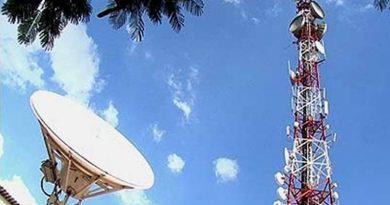A Polio Survivor in Zamfara State, Ibrahim Mohammed, mobilizes support for poliomyelitis vaccination in Nigeria
Mr Ibrahim Mohammed was 12 years old when he caught the poliovirus in Gusau, the capital of Zamfara State in northeastern Nigeria. As a result, he developed a condition that immobilized his left leg and limited his movement. He now walks with the assistance of crutches. Ibrahim couldn’t recall why he didn’t get the prescribed routine immunizations, particularly the polio shots, which would have averted the sickness he currently has.
“As a child, I recall receiving only one vaccine, and it was at school.” I don’t recall my parents ever taking me to get immunized. That, I suppose, is why I was susceptible to polio. When the pain began, my parents took me to several hospitals, but there was nothing that could be done,” he recalls. Ibrahim, at 38 years old, is grateful to be alive and does not want any other youngster to be in his circumstances.
With Nigeria currently encountering hurdles in its polio eradication effort, Ibrahim has used his polio survivor experience to act as a community mobilizer for polio campaigns and routine immunization in Guasu, the capital of Zamfara, for the past 11 years. He leverages his personal experience with polio to actively advocate for the need of immunization among parents. However, Ibrahim is not always successful. At times, his efforts to educate parents about the significance of immunization fall on deaf ears.
He did, in fact, contribute to the country’s most recent vaccine campaign, which attempted to vaccinate almost 7 million youngsters against the virus. In conjunction with the World Health Organization (WHO), the Nigerian Ministry of Health is launching a massive countrywide polio vaccination program aimed at protecting approximately 7,2 million children from the disease.
The vaccine campaign is in response to four instances of circulating poliovirus type 2 (cVDPV2) recorded in 2023, two of which were reported in the recent week in the northern states of Zamfara and Sokoto. Nigeria was certified free of wild poliovirus in 2020. However, transmission of circulating variation Poliovirus type 2 (cVPV2) continues.
Nigeria reported 170 occurrences in 2022, and 22 cases have been confirmed as of May 14, 2023, from four states: Sokoto, Kebbi, Lagos, and Zamfara. Zamfara state has the largest number of cases (seven).
To prevent the spread of cVPV2, the World Health Organization (WHO), UNICEF, and other partners are assisting the Federal and Zamfara State governments in vaccinating over one million children aged 0 to 59 months against the virus through the National and State Primary Healthcare Development Agency (NPHCDA).
GAVI, the Vaccine Alliance, WHO, and other partners are assisting NPHCDA in pioneering the use of novel oral polio vaccine type 2 (nOPV2) and fractional doses of inactivated poliovirus vaccine (fIPV) in Zamfara state, with financing from the Bill & Melinda Gates Foundation.
Four of the seven instances reported in Zamfara, Gusau LGA, where Ibrahim dwells and increases immunization awareness, were reported. Ibrahim believes that widespread immunization is critical to preventing viral transmission and is eager to educate citizens about the need to eradicate all types of polio in the state. He is collaborating with a team of vaccinators to ensure that all eligible children in his LGA’s designated catchment region receive the vaccine.
He goes from home to house, using his experience as a mobilizer during wild poliovirus eradication efforts, to encourage parents to vaccinate their children against polio because he does not want any youngster in Gusau to be disabled by polio like him.
Ibrahim is sometimes upset since his paralysis prevents him from doing many things, and he does not want anyone else to go through it. “My story often helps parents understand the consequences of not vaccinating their children.” Nobody wants their child to be paralyzed. However, some parents remain skeptical and refuse to allow their children to get vaccinated. They refuse to accept the polio vaccine because they believe it will hurt their children.
The community’s understanding and reception of vaccine issues is now better than it was a few years ago, when parents would usually abuse, stone, or chase us away with sticks,” he says. Oral polio vaccine and inactivated polio vaccine are given to children across the country as part of routine immunization under the Extended National Immunization Programme.
Ibrahim is hopeful that Nigeria would be able to eradicate the Circulating Variant Poliovirus Type 2 (cVPDP2) in the same way that it vanquished the wild poliovirus. “I am very proud to be working for WHO and its partners to help eradicate polio in Zamfara State and throughout Nigeria,” he says.




